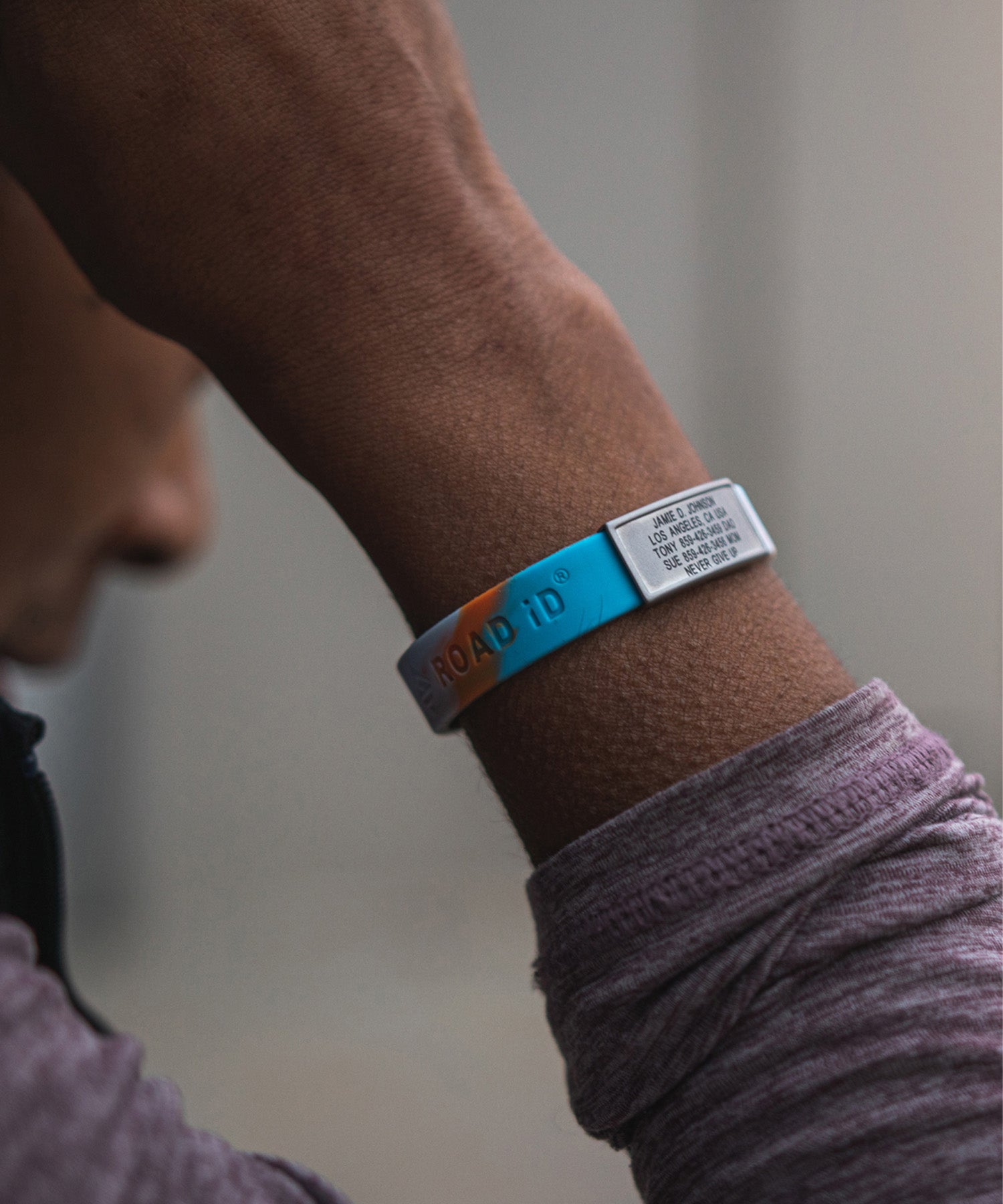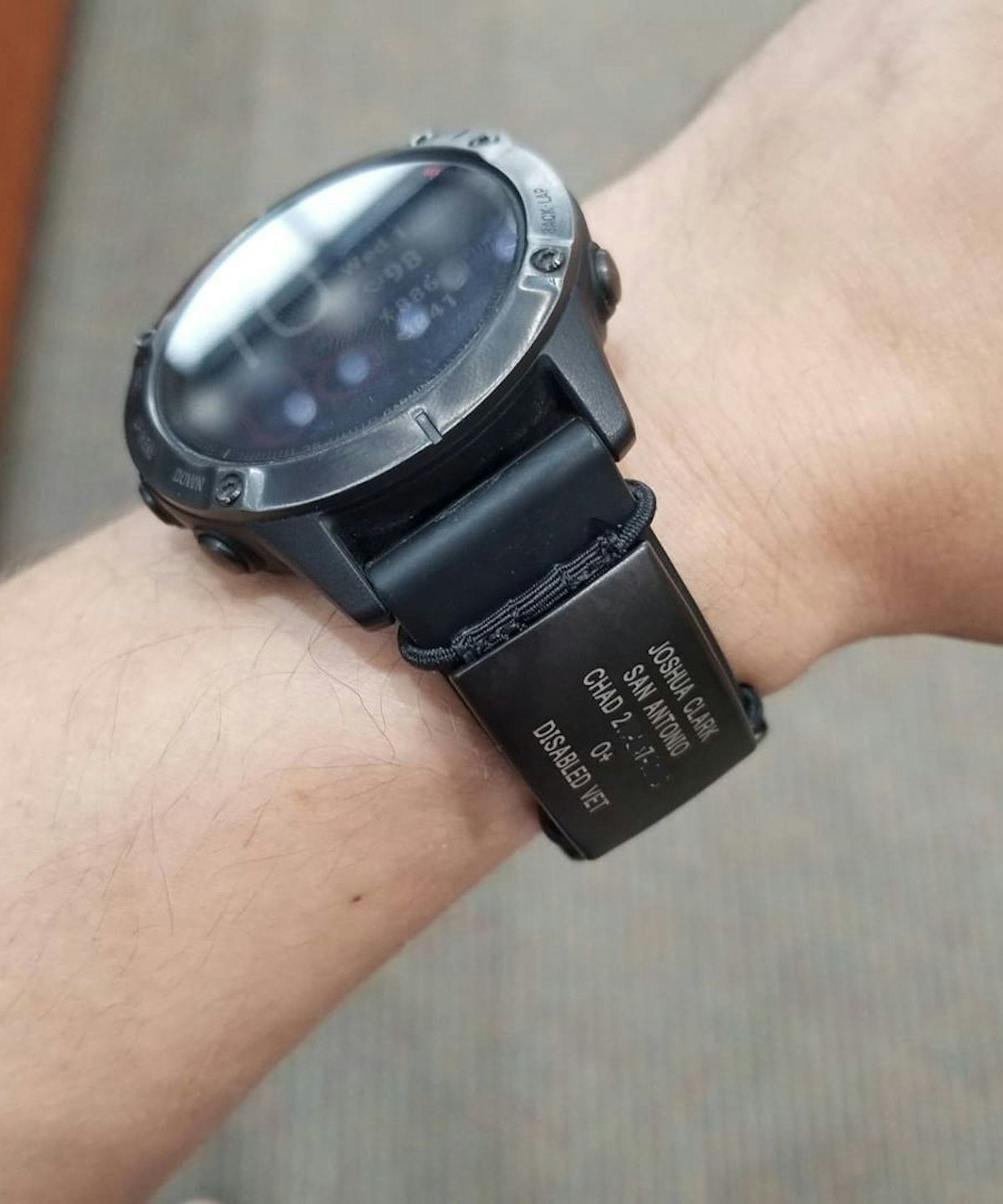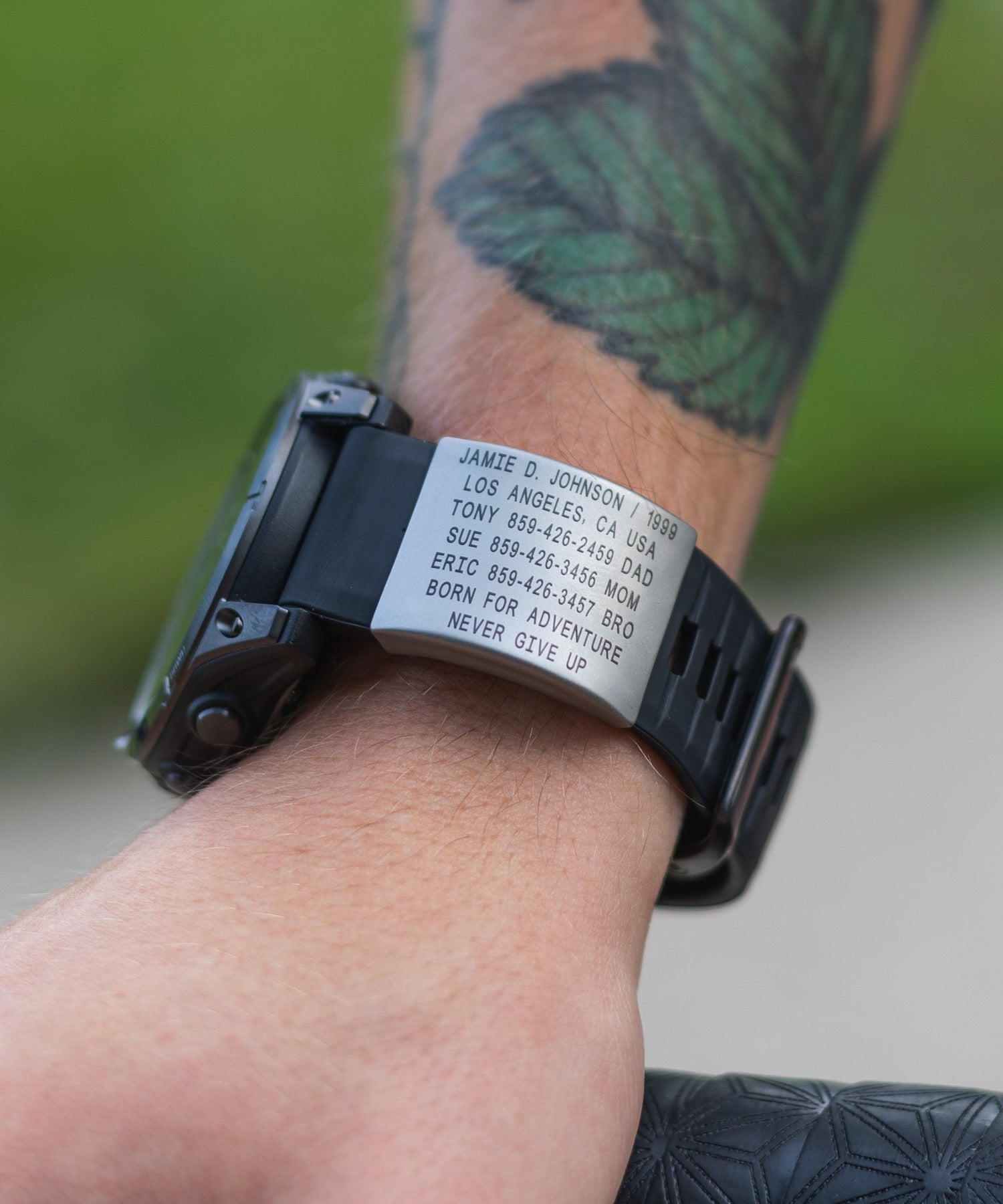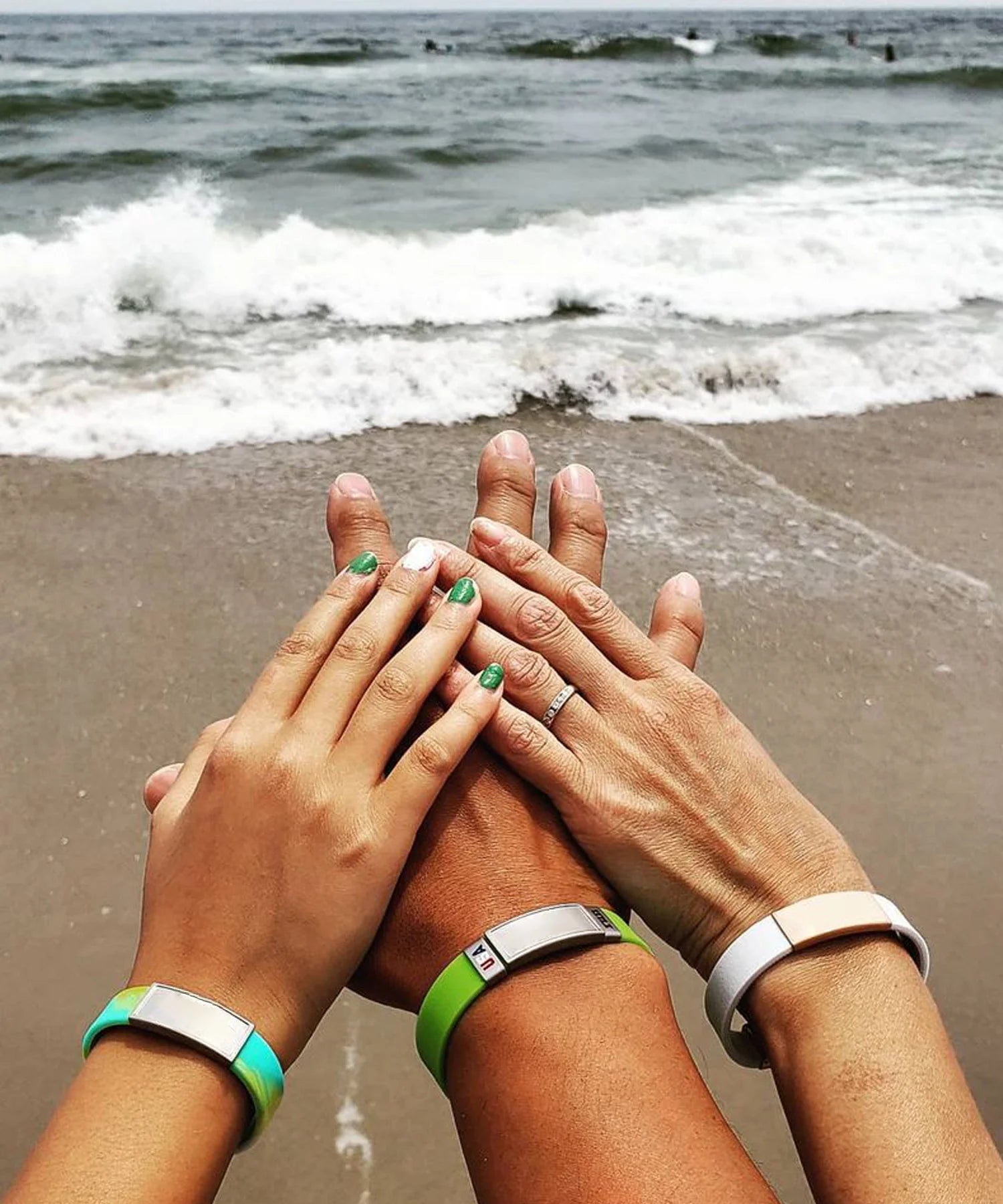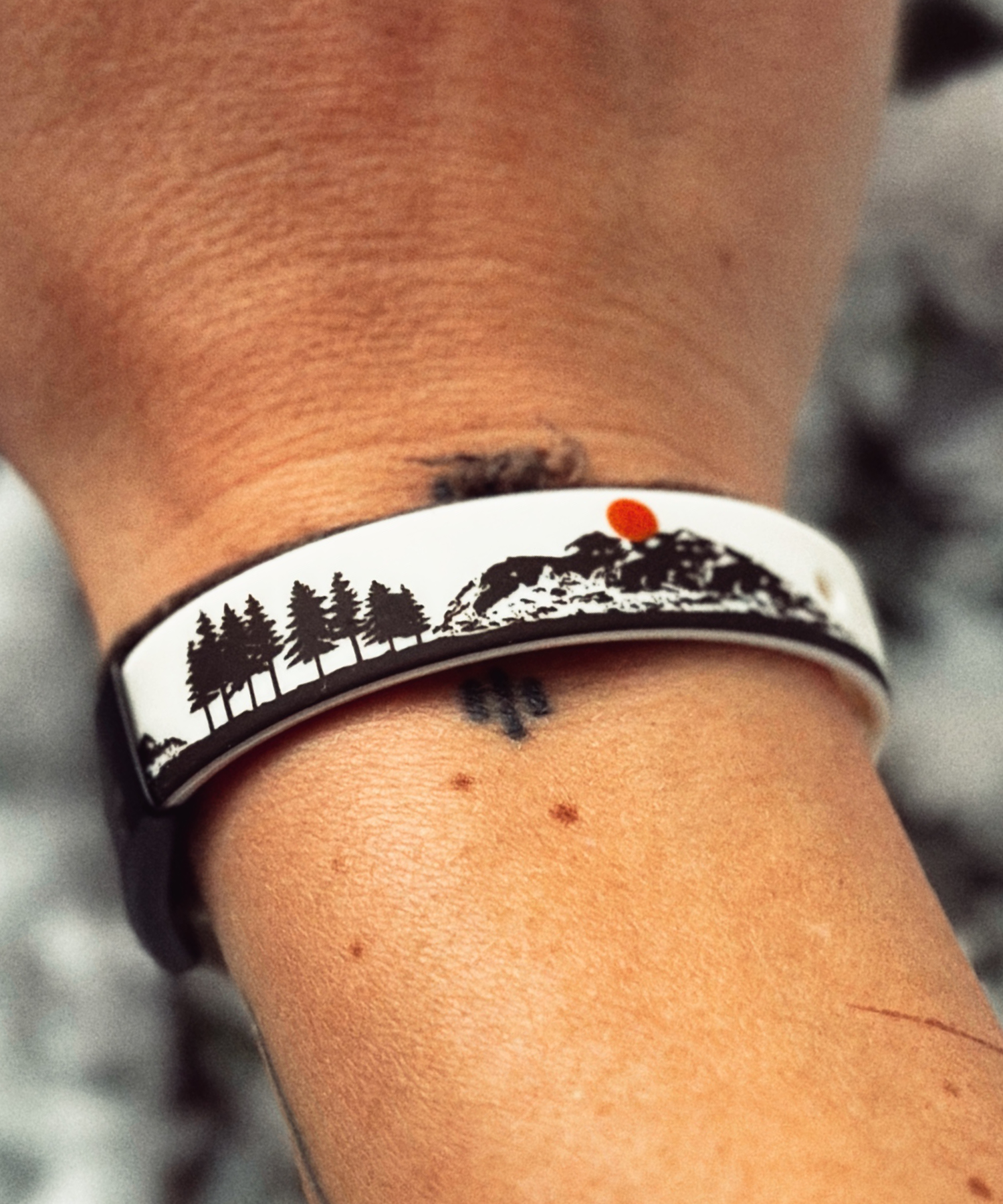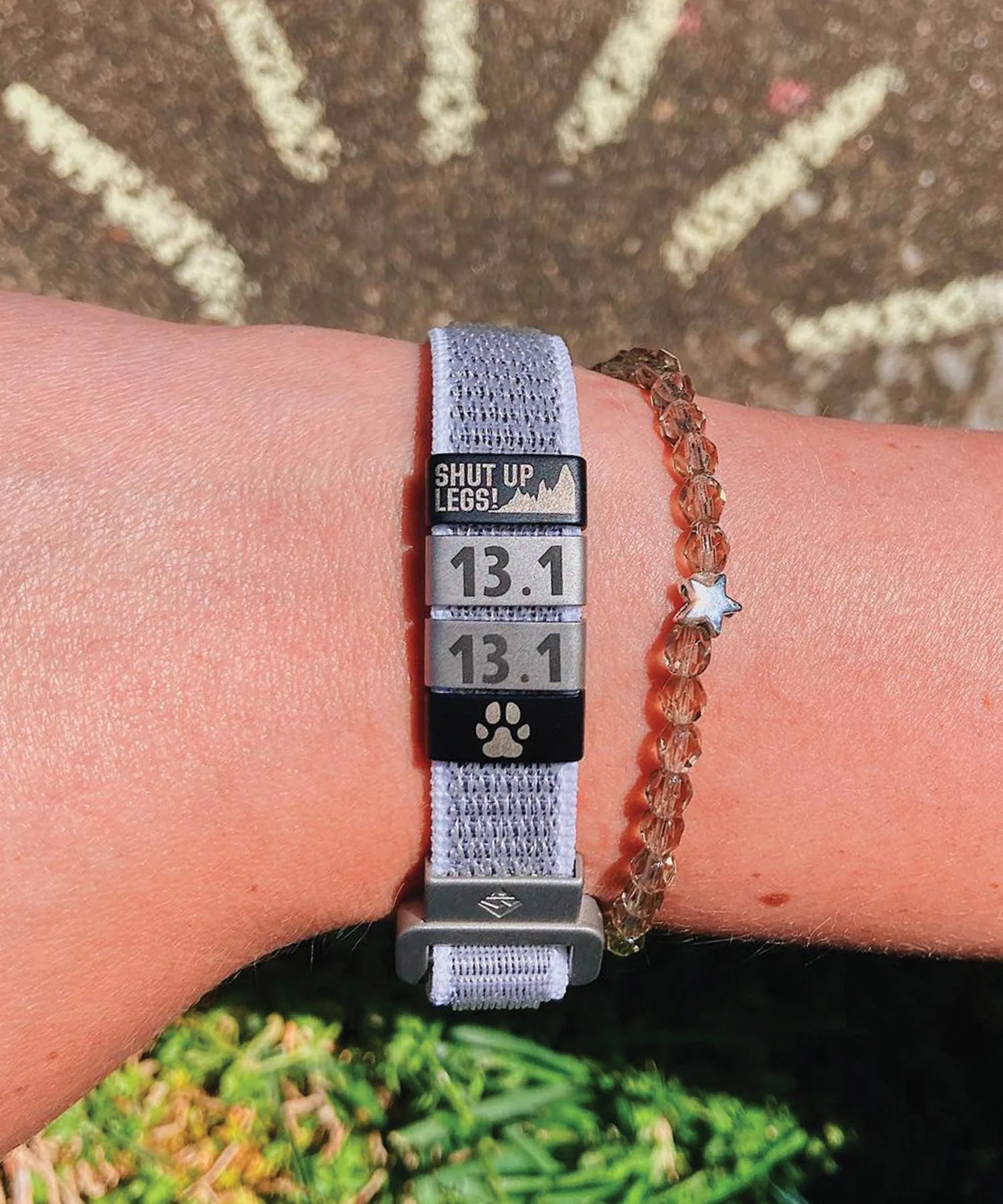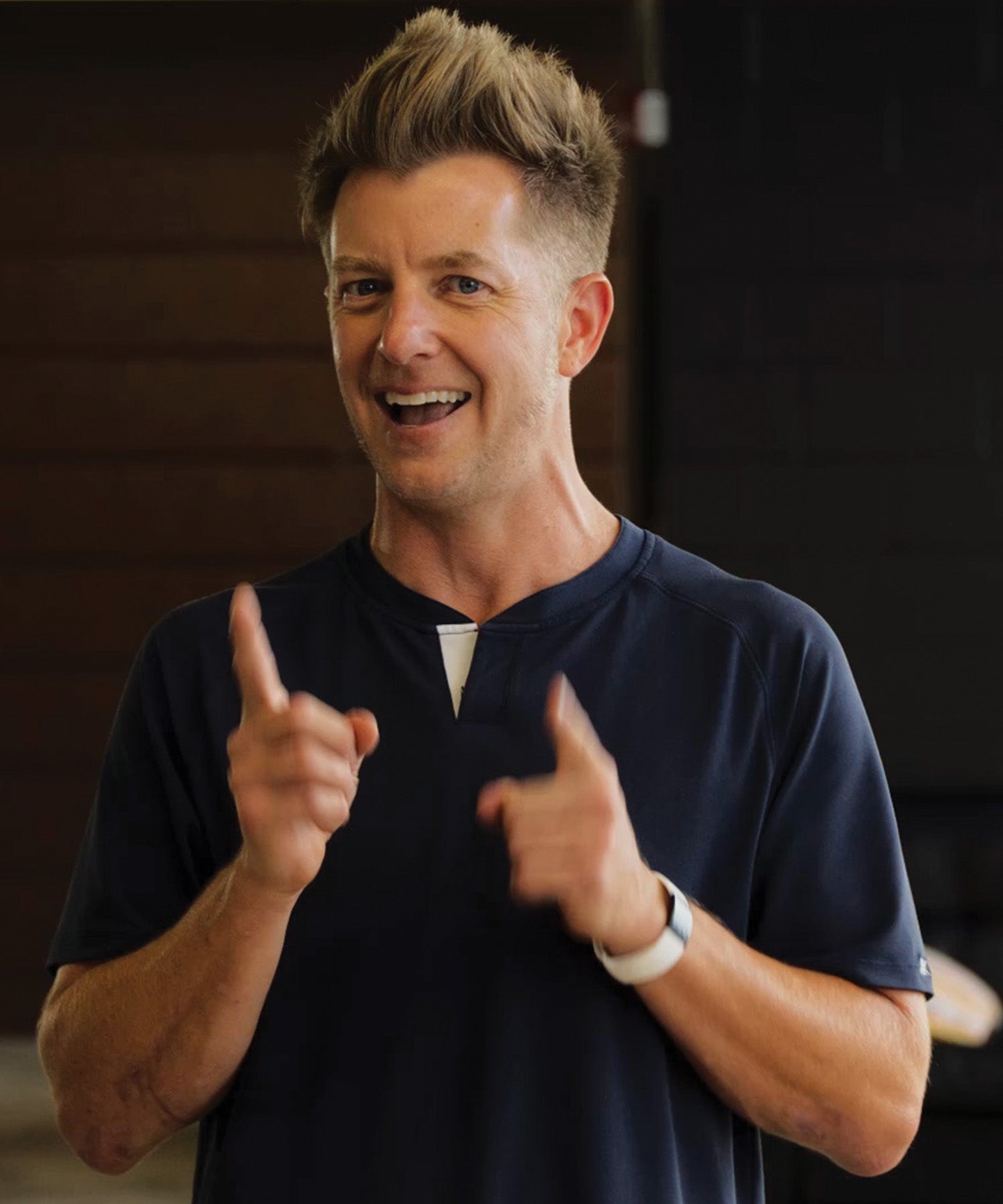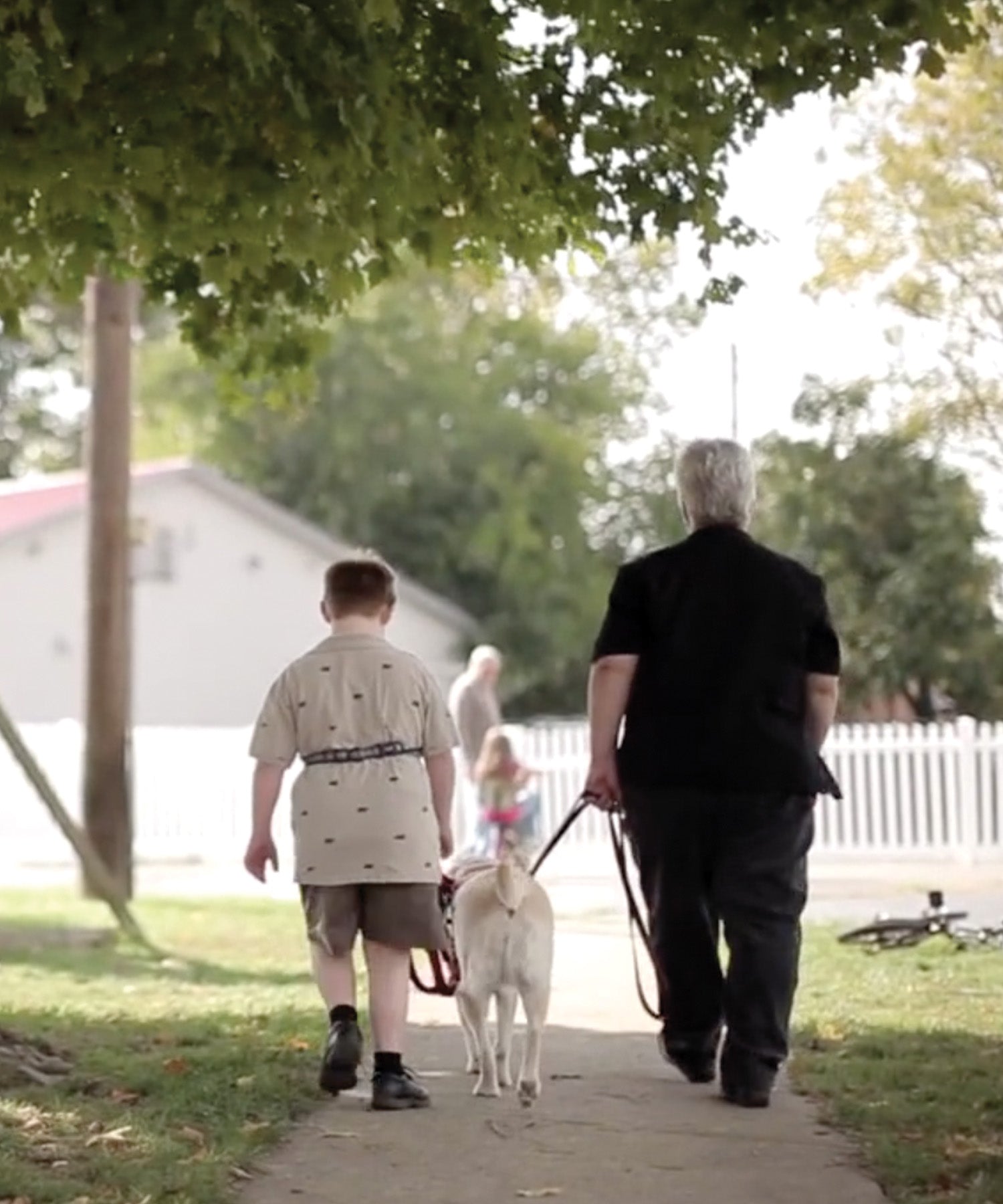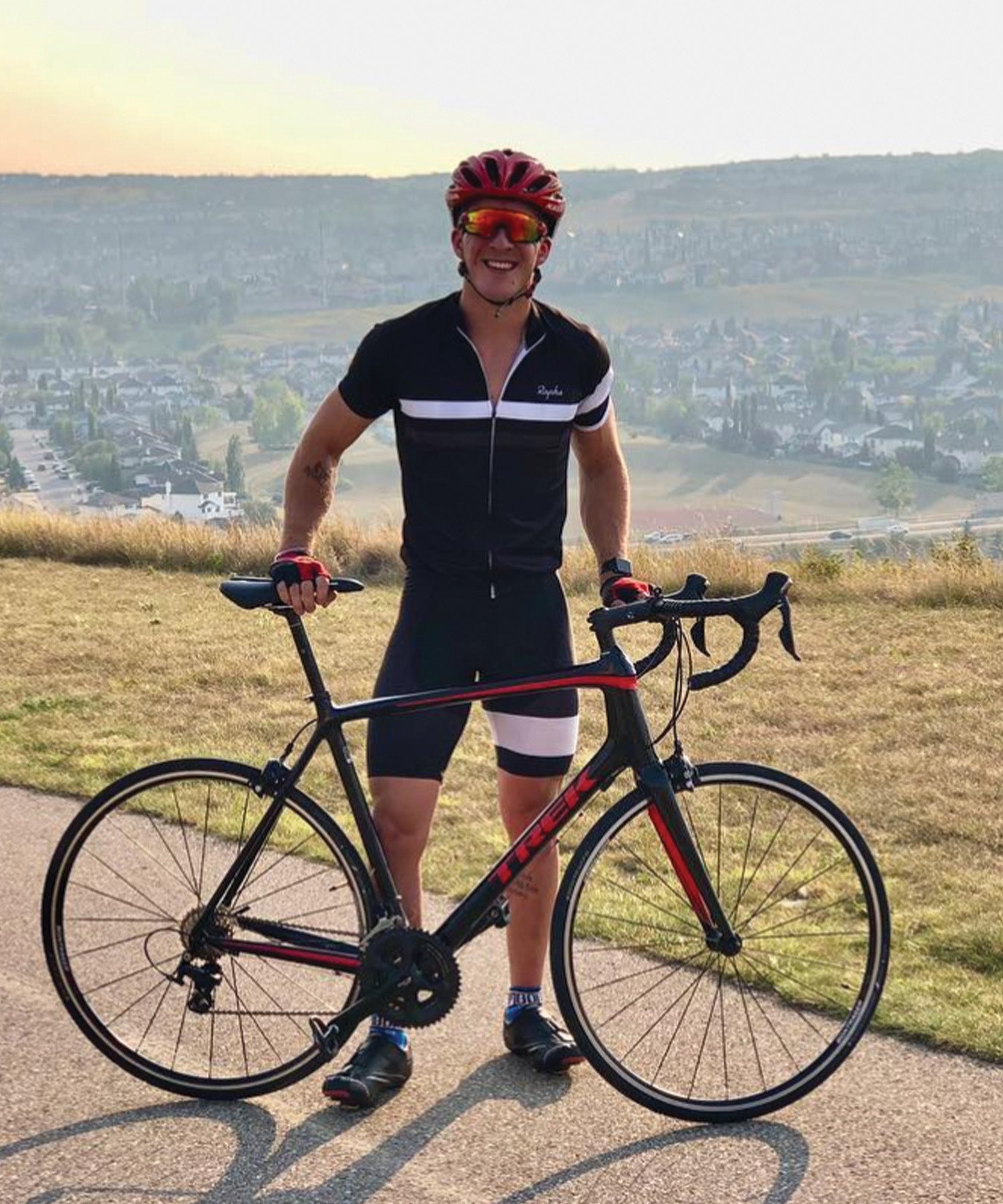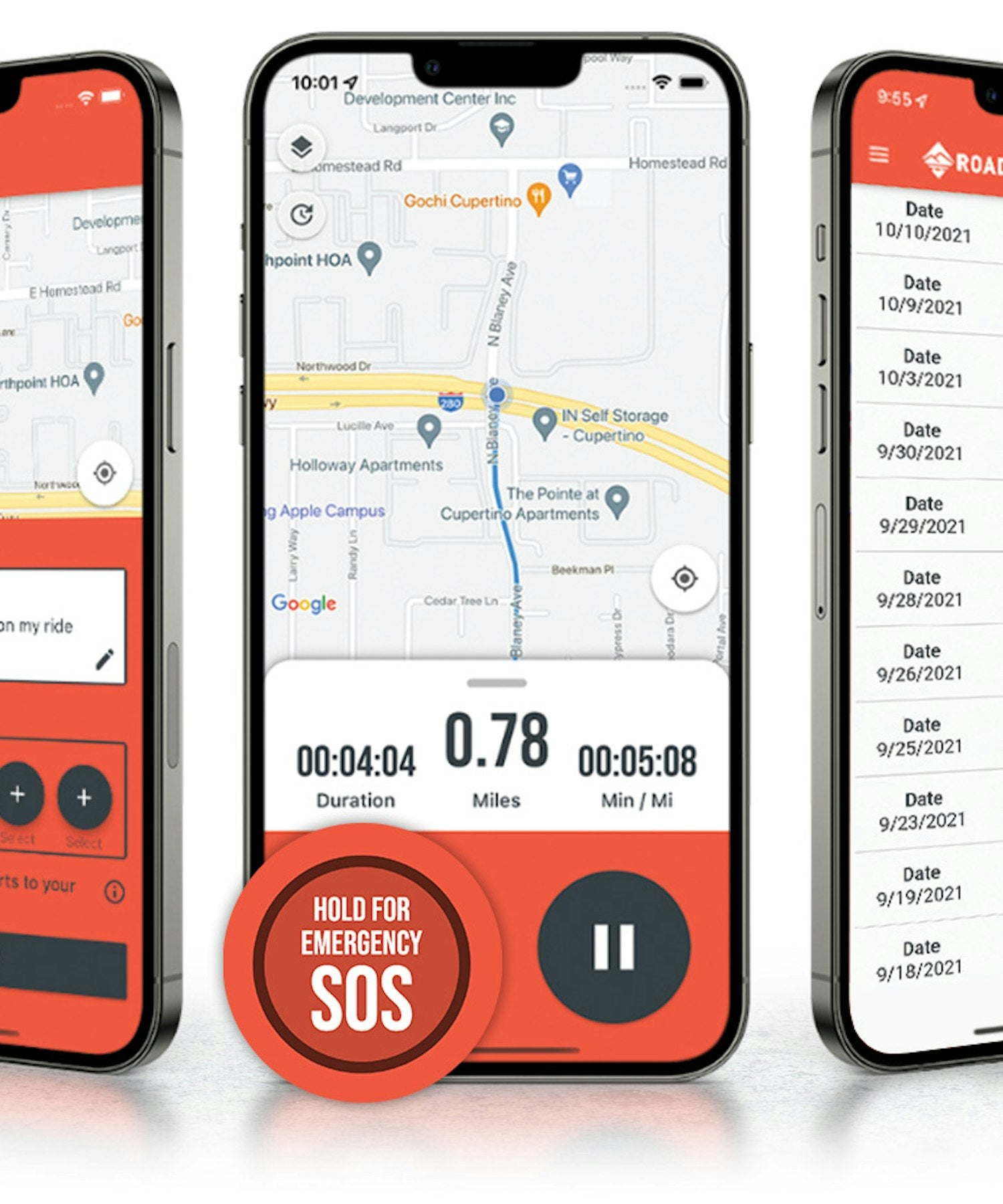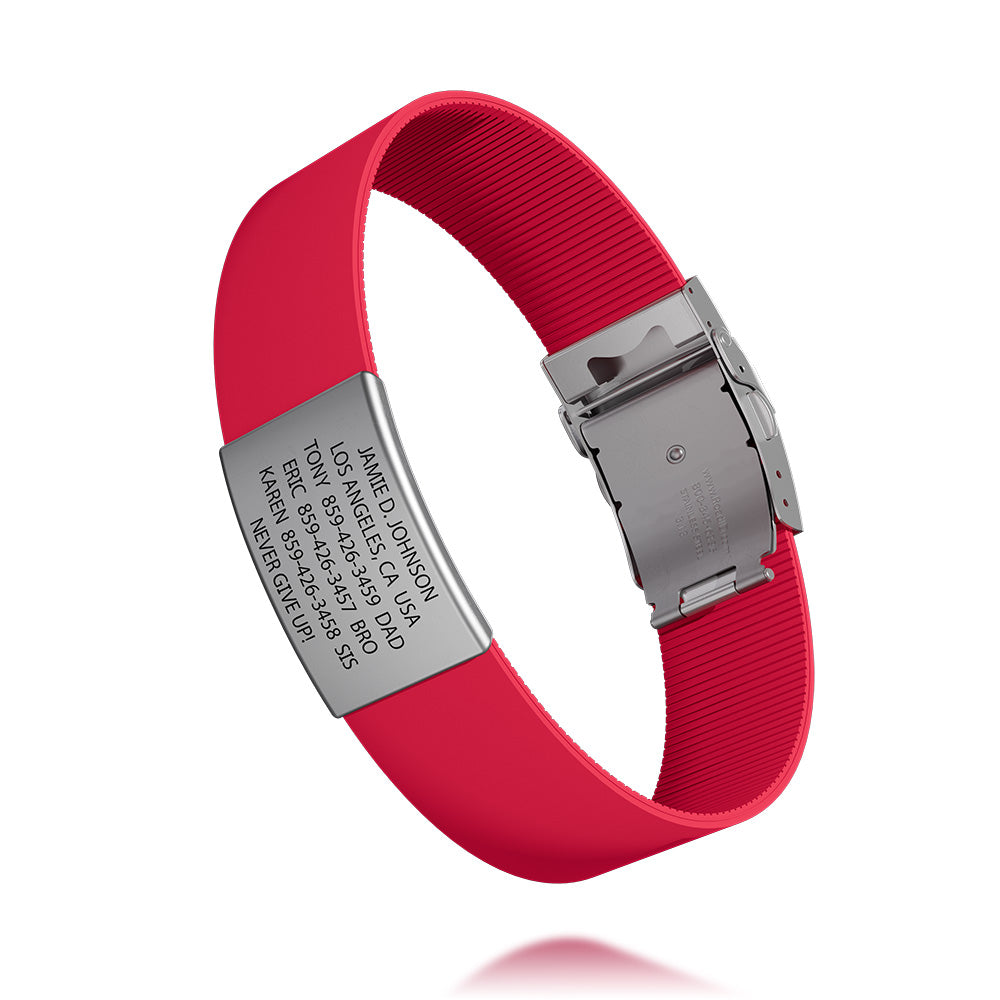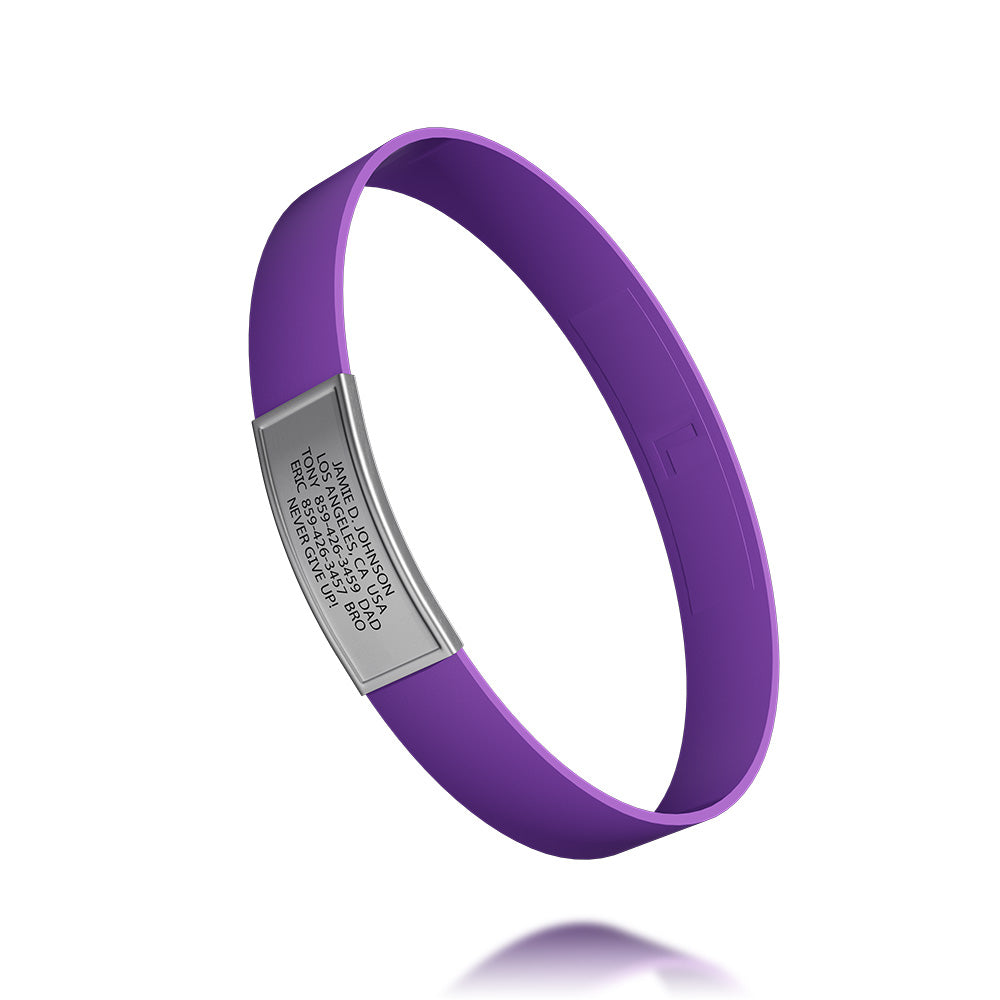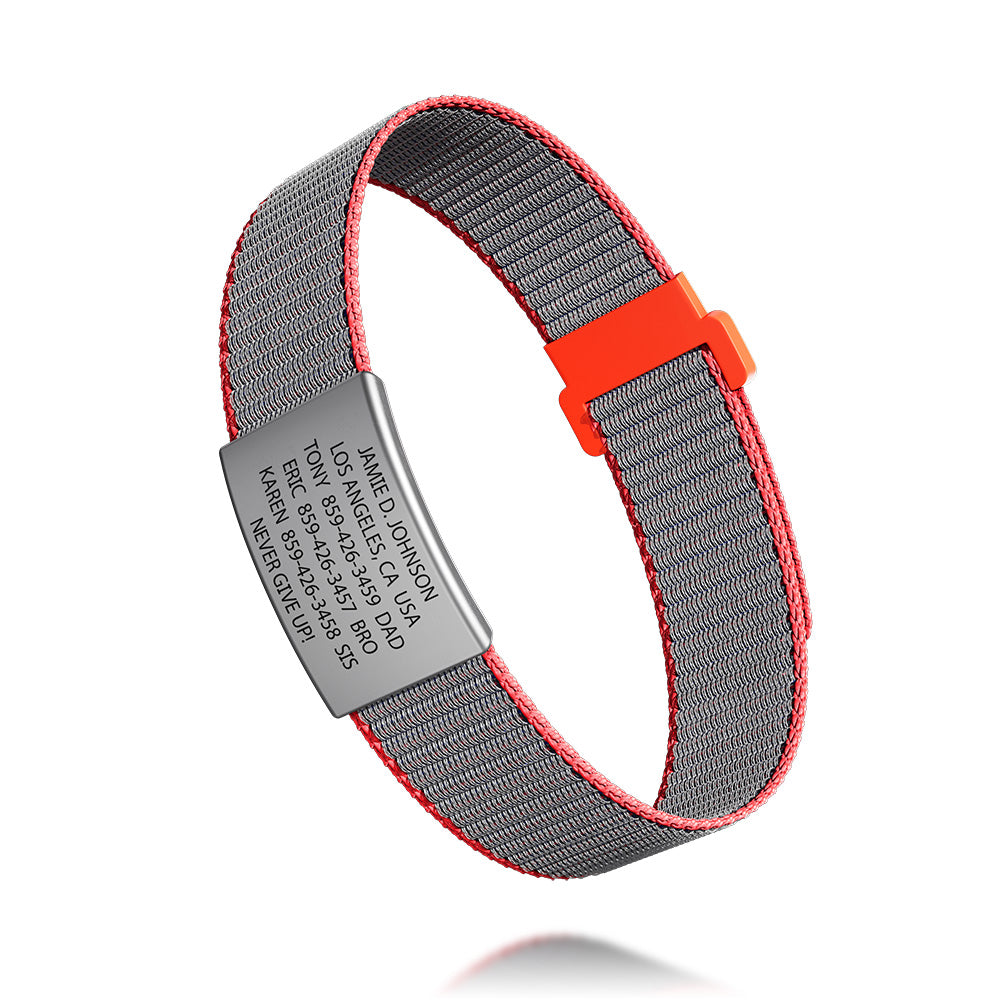Even with all the freedom and power that cycling can offer, there is still the looming undercurrent of potential danger and risk involved in such a challenging sport. After a violent crash in a professional race in 2010, I sustained a broken pelvis and a traumatic brain injury that knocked me unconscious and suffering with seizures.
Fortunately, I was wearing a Road ID, and my dad actually arrived at the hospital before I arrived by helicopter. It was my first broken bone -- and my first private helicopter tour.
 I focused my recovery on the broken bones, without realizing the mental, chemical, and emotional changes that had occurred within my brain. I suffered another head injury in 2011 at the Pan American Games, which lead me to my lowest moments. Yet at these times of darkness, I was able to truly rebuild and work with a neuropsychologist, my team doctor, and my family in order to appreciate my reality and begin the long path of healing. This healing is a daily process, and I still monitor my progress and development.
I focused my recovery on the broken bones, without realizing the mental, chemical, and emotional changes that had occurred within my brain. I suffered another head injury in 2011 at the Pan American Games, which lead me to my lowest moments. Yet at these times of darkness, I was able to truly rebuild and work with a neuropsychologist, my team doctor, and my family in order to appreciate my reality and begin the long path of healing. This healing is a daily process, and I still monitor my progress and development.
Cyclists are at a huge risk for head injuries, and science is only beginning to understand the long-term effects of multiple impacts. Although I have returned to racing in full force with some incredible results, having a head injury is a battle I still fight daily. Who I am is forever changed, but I hope to become someone even better. Here are some of the most important things I’ve learned:
1. Recognize Vulnerability
I am not invincible. This was a hard lesson to learn, but now I realize how precious life is. Each day is a gift, and it is our choice how we make the most of this blessing called life. Wearing spandex and looking like a superhero on a bike does not make me invincible. I may still have some super powers, but I would like to keep the ones I have.
2. Never Take my Mind or Granted
You don’t realize how fragile your brain is until you injure it. I lost the ability to read for a year and struggled with emotional volatility, clinical depression, and impulsivity. We tend to overlook the importance of our properly functioning brain in our regular activities. You don’t realize how much you rely on your mental capacity, your regulation of emotions, and decision-making skills until they are gone. Never take your mind for granted. We only have one of those, and it is a beautiful thing when used to its full purpose.
3. Using Trauma as an Opportunity
 You may have heard of baseline testing for concussions and this is a process I highly recommend for you and your family. I worked with a neuropsychologist in order to assess my cognitive and mental abilities and create a treatment plan. I highly suggest you become aware of the dangers of concussions and how you can prevent and treat them appropriately. This treatment made such an impact that I applied to graduate school, and I am currently studying neuropsychology in order to further unravel the fascinating relationship between neuroscience, psychology, and the mind. I serve on the advisory board of the California Concussion Coalition in order to deliver a more personal story to the continuing education credits that high school coaches and teaches are required to attain. After losing some of my cognitive abilities initially, it has been a rewarding experience to continue to learn, grow and develop, as well as invest in my future and hopefully yours as well.
You may have heard of baseline testing for concussions and this is a process I highly recommend for you and your family. I worked with a neuropsychologist in order to assess my cognitive and mental abilities and create a treatment plan. I highly suggest you become aware of the dangers of concussions and how you can prevent and treat them appropriately. This treatment made such an impact that I applied to graduate school, and I am currently studying neuropsychology in order to further unravel the fascinating relationship between neuroscience, psychology, and the mind. I serve on the advisory board of the California Concussion Coalition in order to deliver a more personal story to the continuing education credits that high school coaches and teaches are required to attain. After losing some of my cognitive abilities initially, it has been a rewarding experience to continue to learn, grow and develop, as well as invest in my future and hopefully yours as well.
4. Everyone Has a Daily Battle
Suffering from a head injury or multiple impacts is not a wound that is easily visible when healed or damaged. It can be a daily battle that you fight for the duration of your life. Although it is difficult for my family to see persistent changes in me from my injuries, I can’t fixate on who I was -- I can only be the best person I am today. It is frustrating to realize limitations and changes, but having an injury does not define you, just like being an athlete does not define you.
We all have different battles that we fight, and mine is no different. It is my responsibility to take the proper safety precautions, like wearing a Road ID or avoiding dangerous situations. I encourage you to hold each other accountable if an unfortunate accident occurs, watch for signs of a concussion, and seek medical help. You don’t have to fight your daily battle on your own.
5. Trust Internal Power
 That being said, I am not here today only because of medical professionals, or the support from my family and loved ones. There was also an internal power from within me that made me want to fight through the darkness and hopelessness. And not only survive, but overcome. Know that no matter your injury or your situation, you are strong and capable.
That being said, I am not here today only because of medical professionals, or the support from my family and loved ones. There was also an internal power from within me that made me want to fight through the darkness and hopelessness. And not only survive, but overcome. Know that no matter your injury or your situation, you are strong and capable.
Be patient, because the recovery process may be longer than anticipated and healing requires time. It is in these moments you find your grit, and you learn more about yourself than you ever intended. I am stronger because of it, and I can use this impact to make an impact. Perhaps it is truly the suffering that forms us. It has been 4 years, and I have just only begun to realize that this too…was a gift.

